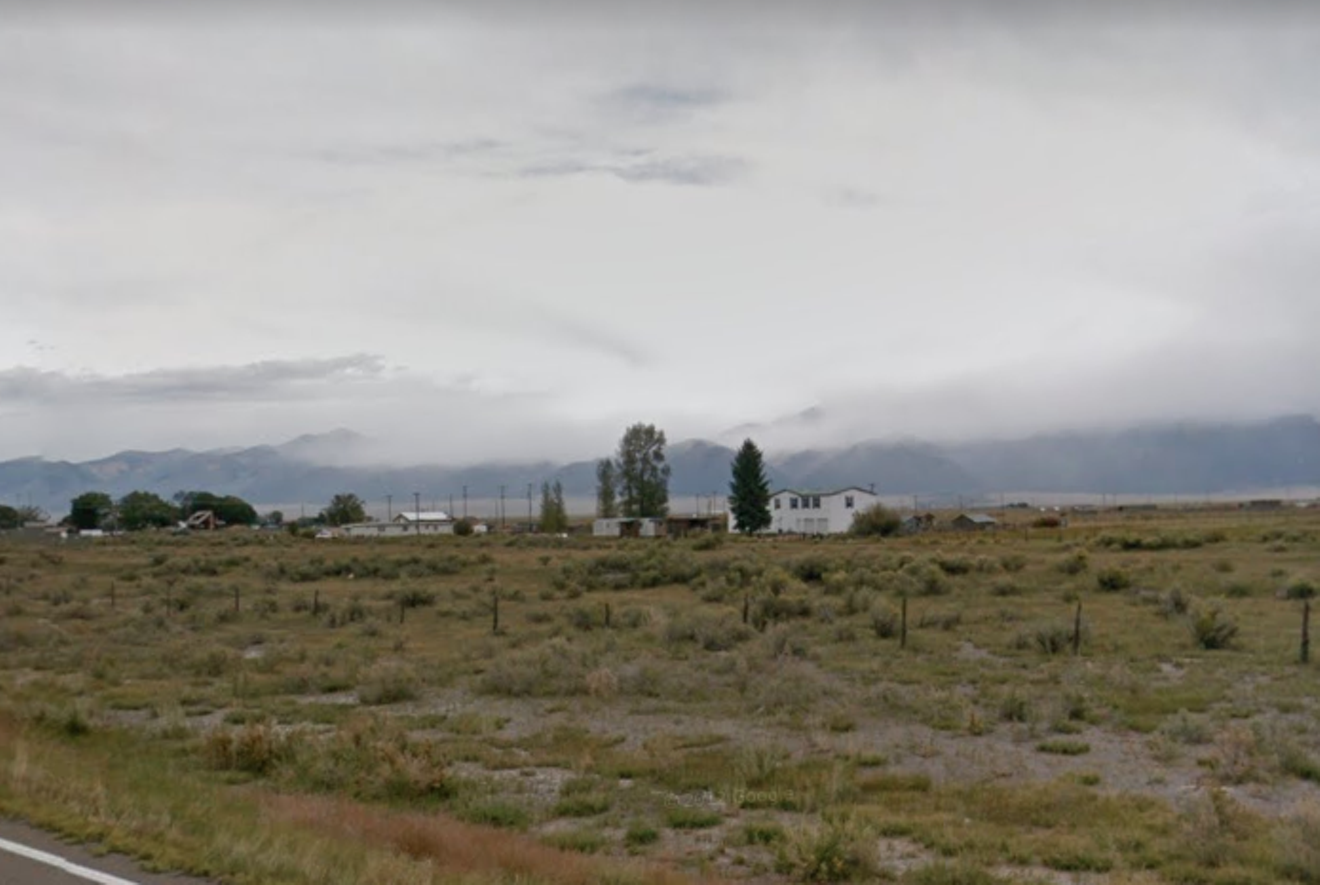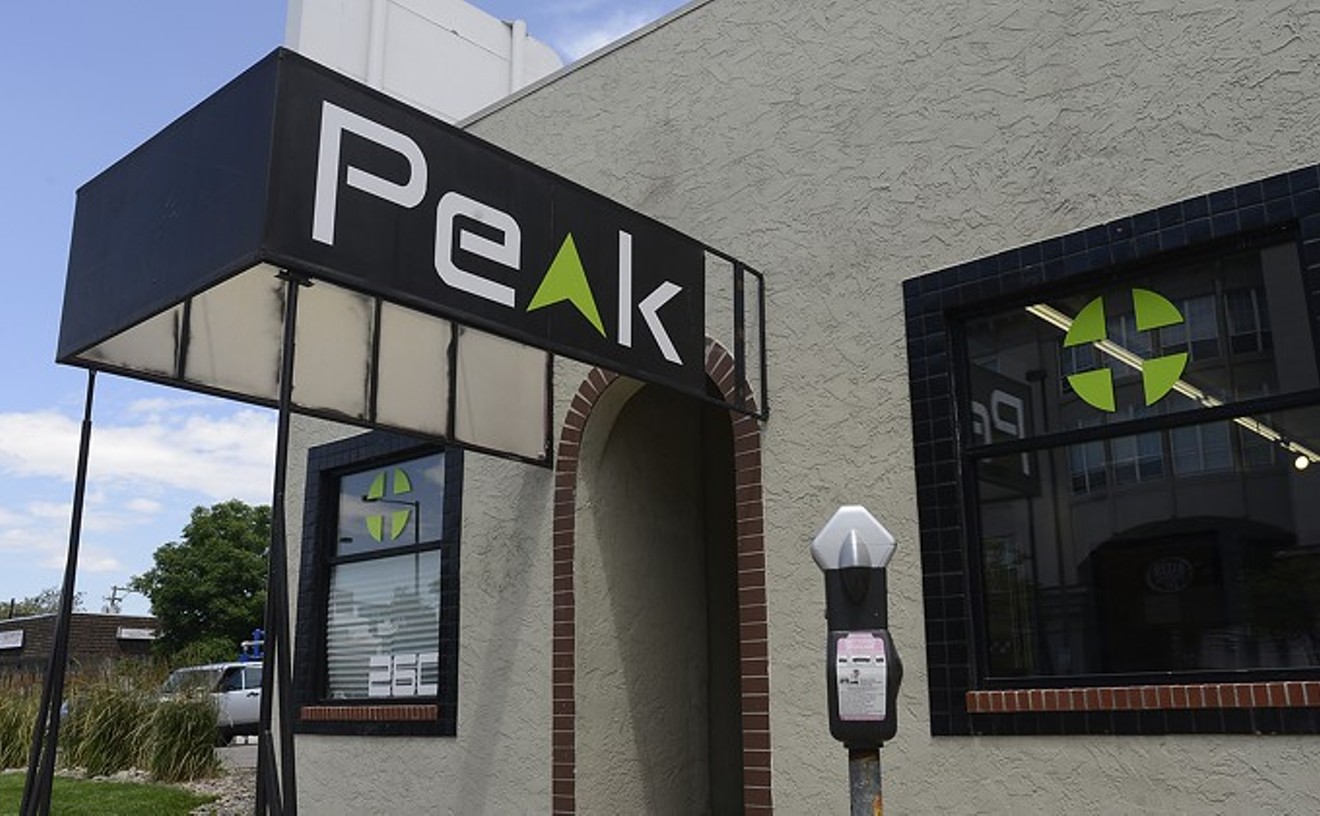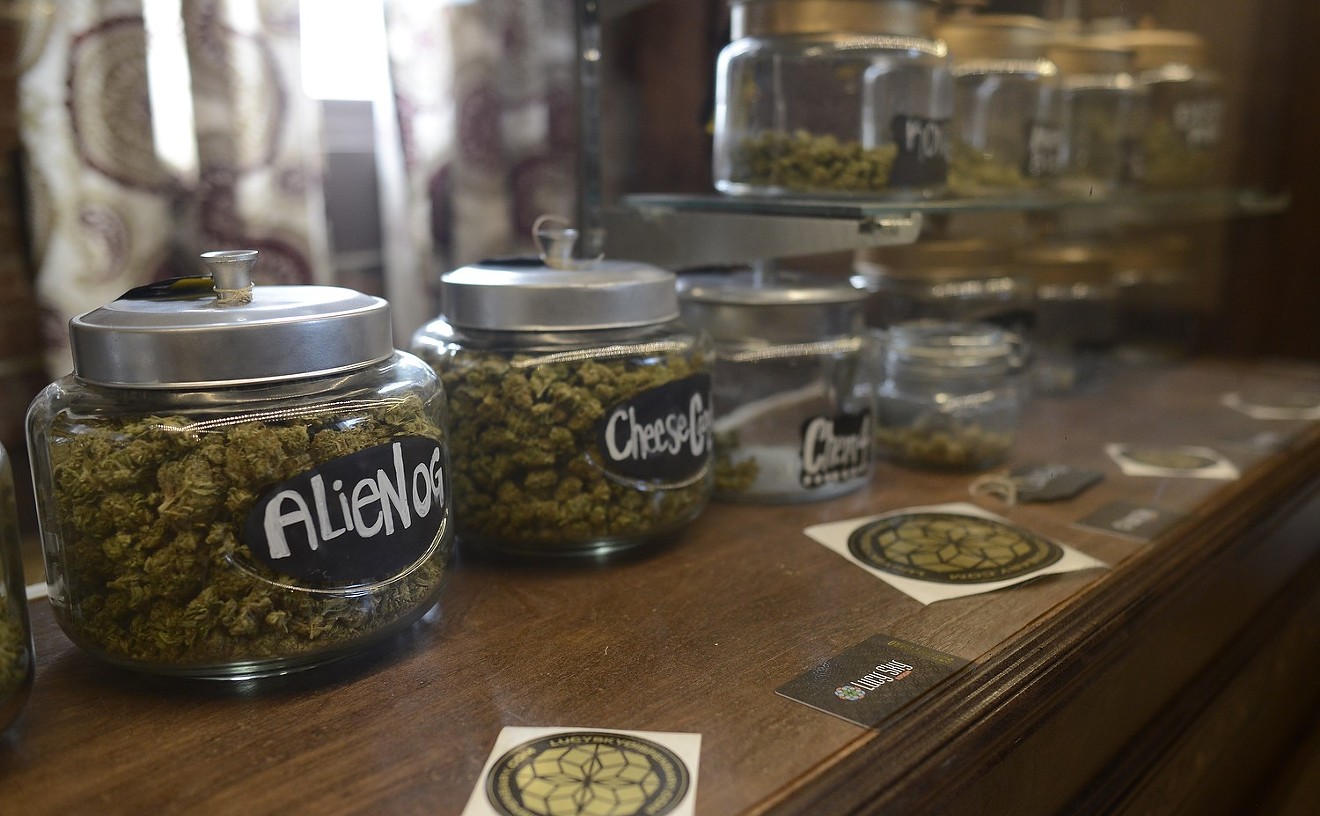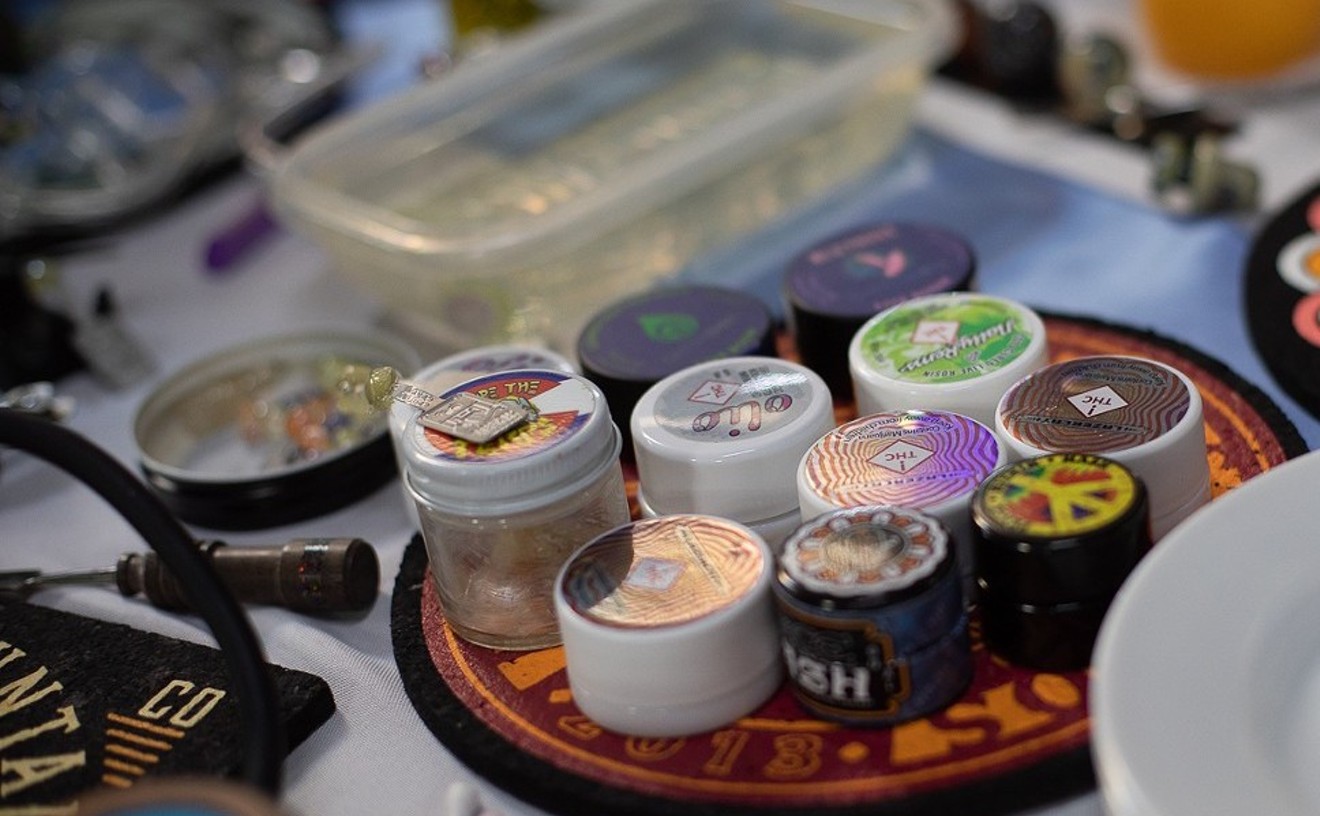"I think they were counting the dogs and cats when they did that," says former Moffat mayor Brian Morgan. "Now we need to figure out how to add more housing, because Moffat doesn't have a lot."
And why does Moffat need more housing? The small, sleepy town in Saguache County is expecting to welcome new faces now that its town board has approved plans for Area 420, a unique business compound that could bring nine different pot companies to Moffat — which will all share space.
Moffat didn't just approve Area 420: The town annexed land from Saguache County for the development — 420 acres, to be exact. Moffat residents hope that creating a concentration of pot businesses will bring new revenue to a town where the estimated household median income is less than $30,000. Potential tenants, meanwhile, hope Area 420 will reduce the cost of doing business that pot enterprises face in Denver and other Colorado communities already saturated with cannabis outfits.
Starting a new cannabis business anywhere in Colorado can be expensive and filled with obstacles, but those difficulties increase in the Denver area, where most municipalities have caps on how many businesses they allow. Taking advantage of those hurdles, a few small towns in rural Colorado opened their doors to commercial pot. Trinidad, which is a stone's throw from New Mexico on Interstate 25, has a population of 8,000...but over twenty dispensaries. Antonito, another town near New Mexico, has three dispensaries for fewer than 1,000 residents.
Moffat is about 75 miles from New Mexico, so it doesn't have the same pot tourism opportunities as towns closer to the border, but Mike Biggio, Jason Irwin and Whitney Justice still thought that all the open space around the town could be put to use. The three used their combination of cannabis-growing experience and commercial-development knowledge to persuade Moffat to annex space from Saguache County.
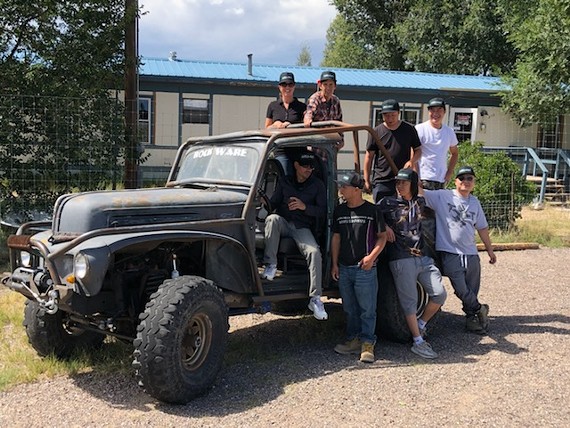
Whitney Justice and Jason Irwin (top of jeep) and some of their Area 420 tenants in Moffat.
Courtesy of Whitney Justice
While visiting a friend in Moffat, Justice met Biggio and Irwin at a party. Before she knew it, she was sleeping in her truck for four nights straight outside of a cannabis greenhouse in Saguache County in order to help with Area 420. "I've canceled two trips to Costa Rica so I could go to Moffat instead," she says, "but I've done all kinds of development, and things have never gone this easy."
The Area 420 group says that Moffat and the town's mayor, Patricia Regal, were extremely welcoming to their idea, granting nine licenses initially and then allowing for fourteen more after a town meeting September 11. "The meeting took less than an hour," Justice says. "To say they're favorable toward marijuana is an understatement."
Morgan, who's now on the Moffat Town Board after serving as mayor from 2012 to 2016, says there was some minor opposition to Area 420 at the beginning, but most of it died out after Justice explained their plan. Moffat previously had a cap on cannabis cultivations and dispensaries, allowing just two each within its borders, but the board has now amended those restrictions twice.
The businesses inhabiting Area 420 will own their slips of land and have access to a commercial water supply. According to Justice, the initial businesses in the project are all wholesale cultivation, extraction and infused-product manufactures, but that doesn't mean a dispensary won't be there in the future. And if Area 420 reaches its full potential, the organizers and their tenants have discussed building tiny homes for employees who now drive to Moffat for work.
"We have businessmen from China buying one, we have a retired Army Ranger who was addicted to opioids on board, we have a man from Africa, and we have some preppy businessmen from Texas," Jusice says. "It's pretty wild and cool to see all this diversity coming to Moffat."
TaRah Graham, who lived in Georgia with his family before moving to Colorado to join the green rush, had trouble finding a spot for Green Life Infusions, his proposed cannabis-extraction business. “We had an attorney looking all over Denver, and the outskirts with retail scenes like Trinidad and Durango. But if the city or county was accepting licenses, it was hard finding land or a building in an [approved] zone," he says. "The only other route is buying a license, and that can cost $750,000 to upwards of $2 million if you're in Denver."
After hearing about Area 420, Graham moved to Moffat earlier this year. Now, as he prepares to launch Green Life, he's moving his wife and children to the town...creating a quick bump in Moffat's population.
Now that the project has local approval, Area 420's tenants are waiting on the state Marijuana Enforcement Division, which can take around fifty days to issue licenses after applications are received. Everyone attached to the project is confident they'll be approved, though.
"What we expect is good neighbors. The state does a background check on everybody that is given a license," explains Morgan. "We also did our own research and reached out to their business references and made sure they didn't have any black-market connections."

